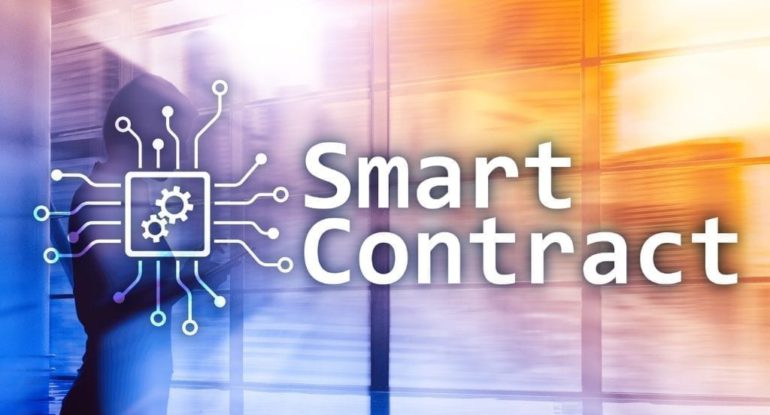Smart Contracts Evolution: Exploring Advancements In Technology, Use Cases, And Their Impact On Traditional Legal Agreements

In the ever-evolving landscape of blockchain technology, one concept has stood out as a game-changer: smart contracts. These self-executing, tamper-proof digital agreements have revolutionized the way we conduct transactions, automate processes, and even redefine the boundaries of traditional legal agreements. From their inception to their current state, smart contracts have undergone a remarkable evolution, bringing about advancements that ripple through industries and challenge conventional norms.
The Genesis of Smart Contracts: A Vision Unveiled
The roots of smart contracts trace back to the early 1990s, when cryptographer and legal scholar Nick Szabo first introduced the concept. Szabo envisioned a digital protocol that could automatically execute and enforce contractual obligations without the need for intermediaries. However, it wasn’t until the emergence of blockchain technology that this vision found its fertile ground.
Blockchain Technology: The Enabler of Smart Contracts
Blockchain, the decentralized and immutable distributed ledger technology, provided the ideal foundation for the implementation of smart contracts. Ethereum, often credited as the birthplace of modern smart contracts, introduced a new programmable blockchain that enabled developers to create and deploy self-executing agreements. This breakthrough marked the beginning of the evolution of smart contracts.
Advancements in Smart Contract Technology
Since the pioneering days of Ethereum, smart contract technology has undergone significant advancements. One key evolution is the enhancement of programming languages used to write smart contracts. Solidity, Ethereum’s native language, laid the groundwork, but subsequent languages like Vyper have emerged, focusing on security and simplicity. These languages have made it easier for developers to create robust and secure smart contracts, paving the way for broader adoption.
Moreover, scalability and efficiency have been critical focuses in the evolution of smart contracts. Early blockchain platforms faced limitations in terms of transaction speed and network congestion. However, the rise of second-layer solutions and alternative blockchains like Binance Smart Chain and Polkadot has addressed these concerns, allowing for faster and more cost-effective smart contract execution.
Use Cases Beyond Cryptocurrencies: Widening Horizons
While cryptocurrencies were the initial drivers of blockchain adoption, smart contracts have propelled the technology beyond digital currencies. The diversity of use cases is staggering, ranging from supply chain management and real estate to healthcare and decentralized finance (DeFi). In supply chain management, smart contracts enable transparency and traceability by automating processes such as product verification and provenance tracking. In real estate, they facilitate secure property transfers and automate rental agreements, minimizing the need for intermediaries. DeFi, on the other hand, has revolutionized traditional financial services by enabling lending, borrowing, and trading without centralized institutions.
Also, read – How Smart Contracts Can Improve Security For Online Payments
Impact on Traditional Legal Agreements
The evolution of smart contracts hasn’t been limited to technological advancements; it has also prompted a reevaluation of traditional legal agreements. Smart contracts offer numerous advantages, including speed, accuracy, and reduced costs, all of which challenge the norms of traditional contract law. While traditional contracts often require intermediaries and manual enforcement, smart contracts are self-executing and automatically enforce the agreed-upon terms when conditions are met. This automated execution streamlines processes reduces the risk of human error, and eliminates the need for intermediaries, potentially revolutionizing the legal landscape.
However, challenges persist in the integration of smart contracts with existing legal frameworks. Issues such as legal recognition, dispute resolution mechanisms, and contractual interpretation in the context of smart contracts remain under scrutiny. As technology continues to evolve, legal experts and regulators are working to create frameworks that accommodate these digital agreements while preserving the principles of contract law.
Yesterday @Grimezsz put out a tweet saying they would split 50% Royalties on any successful Ai generated song that uses their voice
This brings up the perfect use case of how smart contracts can be used 👇 pic.twitter.com/dCoGOMerw6
— Mika (@mikadontlouz) April 25, 2023
The Security Challenge: Auditing and Standardization
As smart contracts gained traction, security concerns became a focal point of the evolution. High-profile incidents like the DAO hack highlighted vulnerabilities in early smart contracts. This prompted the industry to emphasize auditing and best practices to ensure code integrity. Formal verification methods emerged, enabling developers to mathematically prove the correctness of their smart contracts, enhancing security and reducing the risk of vulnerabilities.
The lack of standardized practices also presented challenges. With various platforms and languages, interoperability issues arose. The creation of initiatives like the Interledger Protocol and the Token Taxonomy Initiative aimed to bridge the gap, establishing common protocols and classifications that contribute to a more seamless integration of smart contracts across different systems.
Pricegap uses Binance Smart (BSC) designed to be a high-performance blockchain which is compatible with the Ethereum Virtual Machine (EVM) and supprots smart contracts.
Pricegap recently launched their token $PGT with a total supply of 16,720 only, this token is used as trading…
— Kryptospeaker (@Kryptospeaker1) August 5, 2023
Regulatory Landscape: Navigating Uncharted Territory
As smart contracts continued to evolve, regulatory considerations emerged as a critical aspect. The decentralized nature of blockchain and smart contracts challenged existing legal frameworks. Questions regarding liability, jurisdiction, and compliance arose. Regulatory bodies around the world have been grappling with the classification and treatment of smart contracts under existing laws. Some jurisdictions have taken proactive steps to create legal certainty, while others are still navigating the uncharted waters of this technological evolution.
In the United States, for instance, the Commodity Futures Trading Commission (CFTC) has provided guidance on the classification of virtual currencies and commodities, impacting the treatment of smart contracts related to derivatives and trading. In Europe, the European Blockchain Partnership has sought to establish a unified approach to blockchain regulation, including smart contracts, to foster cross-border innovation and compliance.
Evolving Beyond Blockchain: The Rise of Directed Acyclic Graphs (DAGs)
While blockchain has been the dominant technology behind smart contracts, alternative distributed ledger technologies have gained traction. Directed Acyclic Graphs (DAGs), such as IOTA’s Tangle, offer an alternative approach to transaction validation. Unlike traditional blockchain, which groups transactions into blocks, DAGs enable each transaction to confirm two previous transactions, forming a tangle. This structure aims to address scalability and energy consumption concerns associated with blockchain, potentially paving the way for more efficient and environmentally friendly smart contracts.
Ethical Considerations and Social Impact
The evolution of smart contracts also raises important ethical and social questions. Automation and elimination of intermediaries can lead to job displacement in sectors reliant on traditional intermediaries. This highlights the importance of responsible technological advancement that takes into account the broader societal impact. Additionally, smart contracts’ transparency and immutability can conflict with the “right to be forgotten” principle, sparking debates around data privacy and ownership.
The Next Chapter: AI-Enhanced Smart Contracts
As we peer into the future, a new horizon beckons with the integration of artificial intelligence (AI) into smart contracts. The fusion of AI and smart contracts holds the potential to create self-learning, adaptable agreements that respond to changing circumstances. Imagine a supply chain contract that optimizes routes based on real-time traffic data or a healthcare contract that adjusts payment terms based on patient recovery data. This convergence could redefine the very essence of contracts, as they become dynamic entities capable of continuous evolution and adaptation.
Conclusion: A Bold New Era
The evolution of smart contracts is an ongoing saga, weaving together technology, law, and societal transformation. From their conceptual origins to their incorporation into industries worldwide, smart contracts have shown the world the immense potential of blockchain technology. As they continue to evolve, challenges will undoubtedly arise, whether in the form of regulatory adjustments, technological refinements, or ethical considerations.
Smart contracts stand at the nexus of technological innovation and legal transformation, inviting us to envision a world where agreements are executed seamlessly, transparently, and without intermediaries. While the journey is not without obstacles, the evolution of smart contracts promises a bold new era where the boundaries of possibility are constantly expanding, reshaping the way we transact, interact, and define trust in the digital age. As we move forward, the fusion of technological prowess and legal acumen will determine how smart contracts reshape industries, redefine legal norms, and propel us into a future of unprecedented potential.






























































